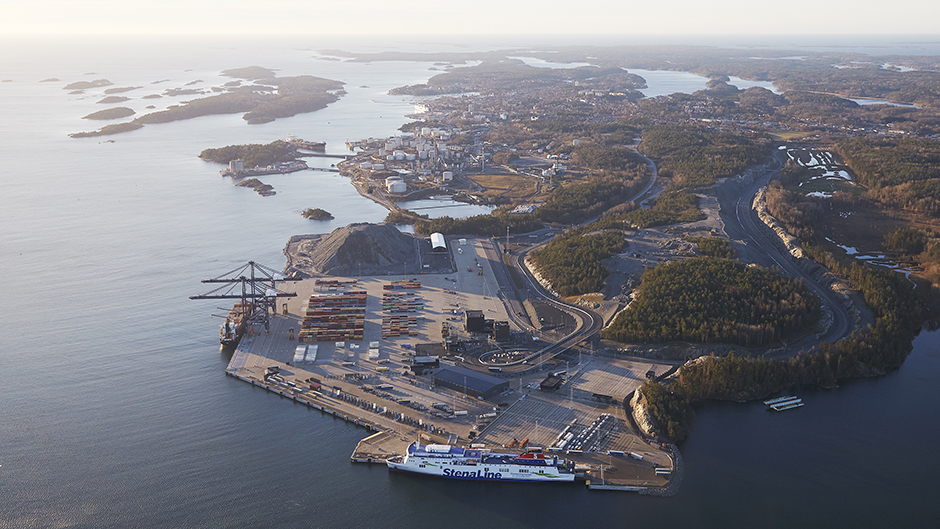Ports of Stockholm, together with the ports in Belfast, Lübeck and Gent and additional alliance partners, has applied for EU grant funding to invest in the role of ports as a node and driving force in sustainable transport provision.

Ports of Stockholm has taken the decision to apply jointly with the ports in Belfast, Lübeck and Gent for EU funding within the European Green Deal framework. The joint application is for green ports of the future to be multi-modal nodes for sustainable and smart mobility through innovation and research within electrification and development of alternative fuels.
The overarching goal is the significant reduction of air pollutant emissions within port areas. This initiative aligns with the EU goal for a low carbon dioxide and climate-proof future through the European Green Deal, the EU sustainable economy roadmap.
“The trend is moving towards a port being not only a loading/unloading hub, but also functioning as a strategic node for multi-modal transport, electrification, digitalisation and automation. This new collaboration is aligned with this development and provides us as ports with greater possibilities to drive innovation and revenue for nearby urban nodes, such as Stockholm,” explains Thomas Andersson, CEO Ports of Stockholm.
For Ports of Stockholm, the planned project includes the possibility to scale up existing onshore power electricity connection capabilities to be able to charge heavier road vehicles and to provide large-scale battery charging facilities for RoPax ships. Stena Line, one of the largest ferry shipping companies in the world and a customer of the ports in both Stockholm and Belfast, is one of the additional alliance partners in the EU application for investment in electrification and battery-powered shipping.
“Electrification is an important part of our journey to achieving fossil fuel-free shipping and we are already operating services with a hybrid ship. We plan to launch an entirely battery-powered ferry by 2030 at the latest and an important prerequisite to succeed in this is the possibility to charge our ships, work vehicles at the quayside and our customers' vehicles with green electricity of sufficient capacity,” states Niclas Mårtensson, Stena Line CEO and member of the Government Offices of Sweden’s Electrification Commission.
The application also includes testing of emission-free machinery within the port areas, a study and pilot trial of autonomous passenger boats and last mile delivery services, as well as charging capabilities for smaller passenger vessels.
All four ports in the joint application are core ports and are part of the comprehensive Trans-European Transport Network (TEN-T). All are leading ports and load and unload ports within their regions that together encompasses the whole of Northern Europe.